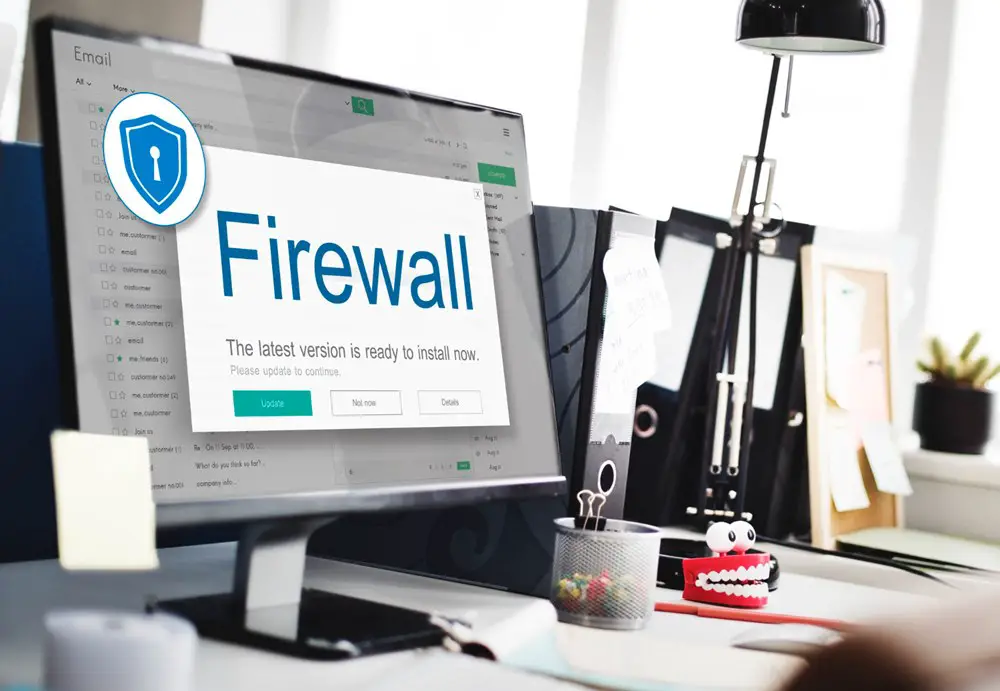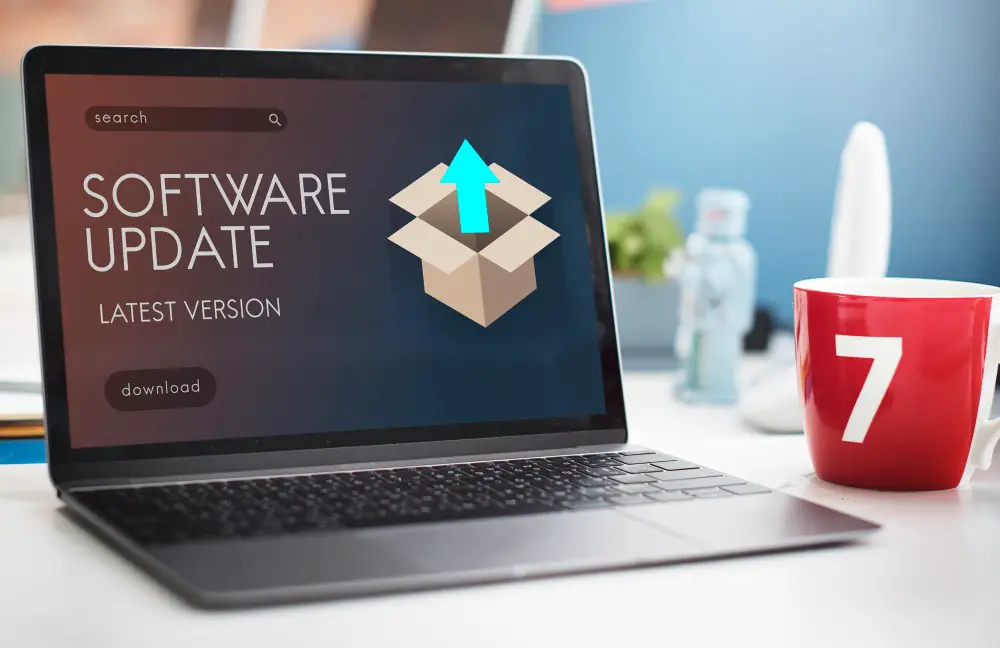Online security is a major issue right now and many people just don’t take the necessary precautions until it’s too late. Ignoring a security problem on your computer can lead to chaos so it’s better to take safety precautions early than to wait until your computer has been compromised. Just by following this list of top 10 online security tips, you’ll minimize the chances of catching a virus or having spyware track your online activity and in the end, compromise your security. There are a lot of ways your security can be breached, so you should cover as many as you can to protect yourself when you’re surfing online.

The good news is the following online security tips are very easy to implement but for some reason many choose to ignore them until there’s nothing they can do about it anymore.
[Read also: 10 Myths About Cyber Security]
Do you think online security is a neglected subject to most internet users? Tell us what you think.
1. Enable Firewall
First and foremost you should make sure that you have a firewall running on your computer. It’s best not to rely on the Windows firewall but rather install firewall software, which usually comes in an Internet Security pack. A firewall will stop hackers from accessing your computer from a remote location and prevent malicious software that you might’ve installed on your computer from accessing the Internet. If you own a router you should make sure that it has its own firewall up and running and you can do that by accessing the setting page of your router and enabling it.
[Read also: How to Detect Malicious Websites]
2. Set Strong Passwords
You should always have strong passwords protecting your files and it’s considered a good practice to choose alpha-numeric characters. Don’t use the same passwords for multiple accounts and make sure you secure the files on your computer containing these passwords.
3. Encrypt Your Important Files
Encryption is a great idea especially for the most important files you keep on your computer. Most people don’t use this great feature and have no idea that they can encrypt a personal file with just a few clicks. Encryption prevents your files from being read by third parties and you can also choose to do this when you keep your files on a USB stick or other external storage device such as an external hard drive that could easily be stolen or lost.
4. Update Your Browser Regularly
You should always remember to update your browser software as soon as an update is available. A common mistake people make right now is browsing the Internet with outdated browsers that may still have important security issues unresolved, and making it very easy for a hacker to compromise their security.
[Read also: Is Hacking an Inside job?]
5. Update your Operating System Regularly
The same applies to your Operating System. You should always enable updates and install them as soon as they become available. These updates are mostly fixed security issues and if you ignore them long enough you might be in real danger very soon. A hacker can use a “back door” to access your system remotely using an older and unsecured version of your OS, so you should always make sure the update service is running and install the updates as soon as they become available.
6. Secure Your Home Network
Many people still have no idea how to secure the home network and it’s actually an easy thing to do and a measure that is guaranteed to keep you safe online. When you’re using a wireless connection in your home, you should always make sure you set a security key. In order to do this you need to run the setup screen on your router and choose to set up a security key to protect your wireless connection. Make sure you have a strong password set up that will prevent hackers from hijacking your connection or track your online activity from a distance. Alternatively, another way you can secure your home network and still have unparalleled speed, reliability, and anonymity, is to use a Proxy Server. Many proxies, like these India proxies are systems or routers that are designed to provide a gateway between users and the internet.
[Read also: How To Enable Secure Connection On Facebook]
7. Install an Antivirus Program
You must know that an antivirus program should always run in the background while you’re online. Make sure your antivirus software is always turned on and that you update its virus signature database at least two-three times a week. There are a lot of good antivirus software alternatives out there, but you should always remember to choose a paid version and not rely on free versions.
[Read also: How Effective are Antivirus Programs?]
8. Scan for Viruses Regularly
After you’ve installed and updated your antivirus software you should also remember to scan your entire system regularly. It’s considered best practice to scan your system once a week if you browse the Internet frequently and remember not to put this off for too long or you might find a lot of threats on your system very soon.
9. Browse Safely Online
You should always think twice about accessing online content from dodgy websites or clicking on advertisements that might take you in a bad neighborhood. If you have doubts about a website or you get a warning from your antivirus leave immediately and perform a scan.
[Read also: Sites Where You Are Most Likely to Get Hacked]
10. Avoid Downloads
As an added safety measure, make sure you don’t download files from file sharing websites or use torrent programs to download illegal software. These are the number one cause for virus or spyware infection and should be avoided at all times. Every time you download a file, make sure you scan it for viruses.
These are the best online security tips for both beginner and advanced Internet users, that can help prevent infections and keep you safe online. If you’re using other gadgets to browse online, such as smartphones or tablets, you should always remember to keep your software up-to-date and install a security app.
[Read also: Keeping Your Business Secure Online – What Your Company Needs to Know]
Are the tips above good enough to stay safe online? Do you have any online security tips to share? Let us know in the comments.


That’s one is great tips I recently get into Gp code virus and mostly my all data corrupt because it covert my whole pcs file into notepad code I try to search on Google but didn’t found any useful links finally I judge that format is best solution for that and it’s very hard to get back this data.
Sometimes there’s nothing left to do but format and reinstall. That’s why you should follow these tips, so you can prevent these situations from happening in the first place.
Hey Marty i followed your all tips 🙂
I think Installing Better Antivirus is enough to keep online Secure.
Thanks for those superb tips.
There are a lot of things that can go wrong so a good ant-virus is not enough anymore. It won’t protect you from someone who wants to hack into your computer. A firewall and an anti-malware program can also help a lot.
I think everyone can easily follow all these simple rules. Having an antivirus or a firewall protection are well known and most of the PC owners have at least one of them. All the other rules can easily become a good habit, even if at first it will seem hard to scan for virus once a week, for example. I will make a list with these great tips, and keep it on my desk, thank you!
Well absolutely true, these are really the basics by adopting to which one can really make him/her self secure. The most important point is to install an antivirus which can do a lot of these tasks simply alone.
Yes, I do agree with the installation of an antivirus software which can handle a lot of processing alone.